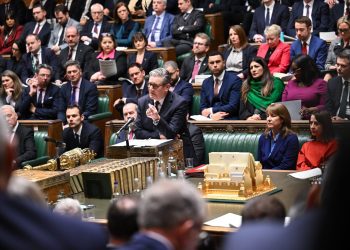When we talk about the great health challenges facing the UK, cancer and heart disease rightly come to mind. But too often we overlook dementia – the leading cause of death in this country for some time. Behind that statistic is a person, a family, and a community living with the uncertainty that this condition brings.
For too many, that uncertainty begins long before a diagnosis. At present, around one in three people living with dementia never receive a formal diagnosis. That means hundreds of thousands of families are left without answers, without support, and without the chance to benefit from treatments and care that can make a real difference.
This matters now more than ever. In recent years, new treatments have emerged that can slow the progression of Alzheimer’s disease – the most common cause of dementia. They are not yet available on the NHS, but their arrival marks a turning point. And there are now more than 180 trials underway testing nearly 140 experimental treatments for Alzheimer’s across the globe, with over 30 in phase 3 trials. For the first time, there is genuine hope that the course of this disease can be changed. But that hope is only meaningful if people are diagnosed early and accurately.
In West Dunbartonshire, where around 1,278 people are living with dementia, I regularly hear from families desperate for clarity. Many wait months – even over a year – for a specialist appointment, enduring not just the uncertainty but the toll it takes on loved ones left struggling in the dark.
I know this experience all too well. My mother began showing signs of Alzheimer’s at just 62. My brother and I faced the same long waits for diagnosis, and the same delays in accessing the care and advice we desperately needed. She had always cared for us, and suddenly she was the one who needed care.
Today, at 78, my mum receives outstanding support in a local care home. I often share our family’s journey with constituents who are worried about their own loved ones. It’s a reminder that behind every statistic is a person and a family. Yet early and accurate diagnosis is still just as challenging now as it was 15 years ago.
The benefits of a diagnosis are clear. It gives people a name for what they are experiencing, and with that comes access to support and the ability to plan for the future. It allows families to understand what is happening and to adapt together. And in the years ahead, it will open the door to new treatments that could give people their independence for longer, and more time with loved ones. Everyone has the right to an early and accurate diagnosis.
However, we need to take action now. New insights from Alzheimer’s Research UK reveal the scale of the challenge: more than nine in ten NHS dementia professionals surveyed believe a diagnosis benefits families and carers – but less than a third say the current pathways are fit for purpose. Families are often waiting over 12 months for answers, with one in five people surveyed still waiting more than two years after visiting their GP. Health teams – doing their best – are stretched thin, with poor coordination and limited access to modern diagnostic tools. Fewer than half of health professionals feel able to provide the level of care they want to.
We owe it to people living with dementia to do better. That means investment, innovation and leadership. I am pleased that the government has committed to a Modern Service Framework for Frailty and Dementia as part of our ten-year health plan – a vital step in ensuring that the NHS can meet today’s demand and tomorrow’s opportunities.
I am also proud to support Alzheimer’s Research UK’s Dementia Unseen campaign, and their call to make early and accurate dementia diagnosis a right for everyone. Because while this challenge is urgent, it is also something we can solve. With the right tools, the right investment, and the right political will, we can build a system where no one is left waiting in limbo.
Early and accurate diagnosis is the foundation for everything that follows – and we must act urgently to make it a reality for everyone, in every community.
Sign Alzheimer’s Research UK’s petition here.
Politics.co.uk is the UK’s leading digital-only political website. Subscribe to our daily newsletter for all the latest news and analysis.
The post Douglas McAllister: ‘A dementia diagnosis should be a right, not a waiting game’ appeared first on Politics.co.uk.

































